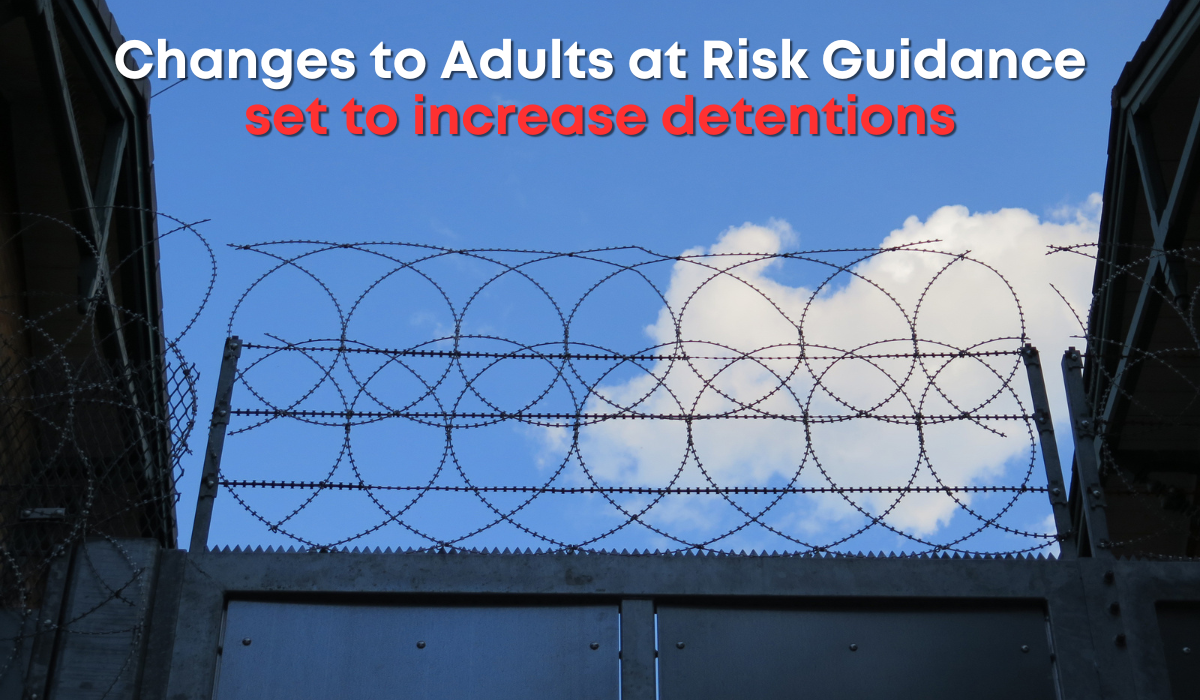The Home Office has announced amendments to the Adults at Risk guidance, scheduled to take effect on May 21, 2024. These changes, revealed through the draft statutory Adults at Risk guidance published on April 30, 2024, mark a pivotal moment in the UK’s approach to handling vulnerable individuals within the immigration system.
Historically, the guidance aimed to reduce both the number and duration of detentions of vulnerable people. However, the revised directive paints a different picture, emphasizing detention as a crucial element of the UK’s immigration enforcement strategy. The new policy states, “Detention plays a key role in maintaining effective immigration control, particularly as a means to facilitate the removal of people who have no right to be in the UK but refuse to leave voluntarily.” It starkly notes that “no group of vulnerable people within this guidance is exempt from the possibility of detention.”
Critical changes and implications
The impending guidance introduces several concerning modifications that could lead to more frequent and prolonged detentions:
- Extended detention durations: The guidance now suggests that detaining vulnerable individuals for longer periods might be necessary to thoroughly assess their cases, stating, “A balanced approach to consideration of the evidence must be taken, which may require a reasonable period of time to obtain all the relevant information and make an assessment of all the evidence.”
- Second professional opinions: A new provision allows for a ‘second professional opinion’ in cases involving detained individuals under immigration powers. This move appears to aim at challenging medical evidence supporting a person’s release, potentially undermining the credibility of initial assessments made by independent health professionals.
- Downgrading of medico-legal reports: The guidance no longer recognises medico-legal reports from reputable providers like Freedom from Torture, Helen Bamber Foundation, and Medical Justice as automatically meeting the highest evidence threshold. This change could devalue the robust medical documentation these organisations provide in support of torture victims.
- Credibility assessments: The guidance suggests that previous court or tribunal determinations regarding an individual’s credibility should influence decisions, potentially affecting the outcome of cases where new medical evidence is presented after initial credibility doubts.
Concerns from human rights advocates
Human rights organisations and legal experts have voiced significant concerns over these changes. Critics argue that the amendments could lead to increased harm and potential breaches of Article 3 of the European Convention on Human Rights, which prohibits inhumane or degrading treatment.
Enver Solomon, CEO of the Refugee Council, criticised the government’s direction with the Adults at Risk Guidance, stating, “The government is determined to recklessly pursue its inhumane Rwanda plan despite the cost, chaos, and human misery it will unleash.”
Broader context and legal framework
These changes align with broader government efforts to tighten immigration controls, as evidenced by the recent activation of the Safety of Rwanda Act and the increased use of detention in immigration enforcement.
As the UK navigates these critical changes, the impact on vulnerable populations and the ethical implications of such policies will undoubtedly continue to spur debate and legal challenges. The legal community and advocates urge a reevaluation of these strategies in favor of a more humane and just approach to immigration.
For those affected or concerned by these changes, staying informed and seeking expert legal advice is crucial as the landscape of UK immigration law continues to evolve.
Get in touch: For a comprehensive understanding of your options or queries on UK immigration matters, contact GigaLegal Solicitors at 02074067654 or click here to book a no-obligation consultation with an immigration expert.


